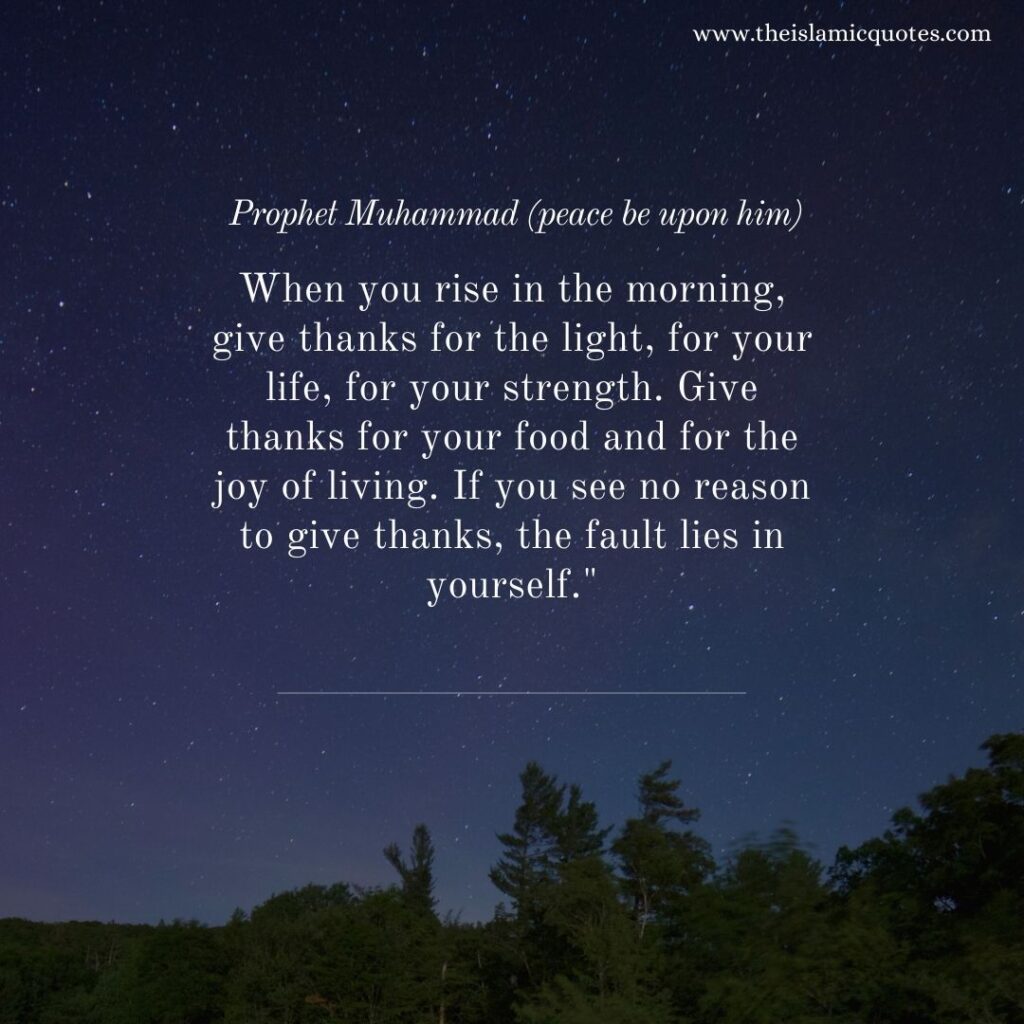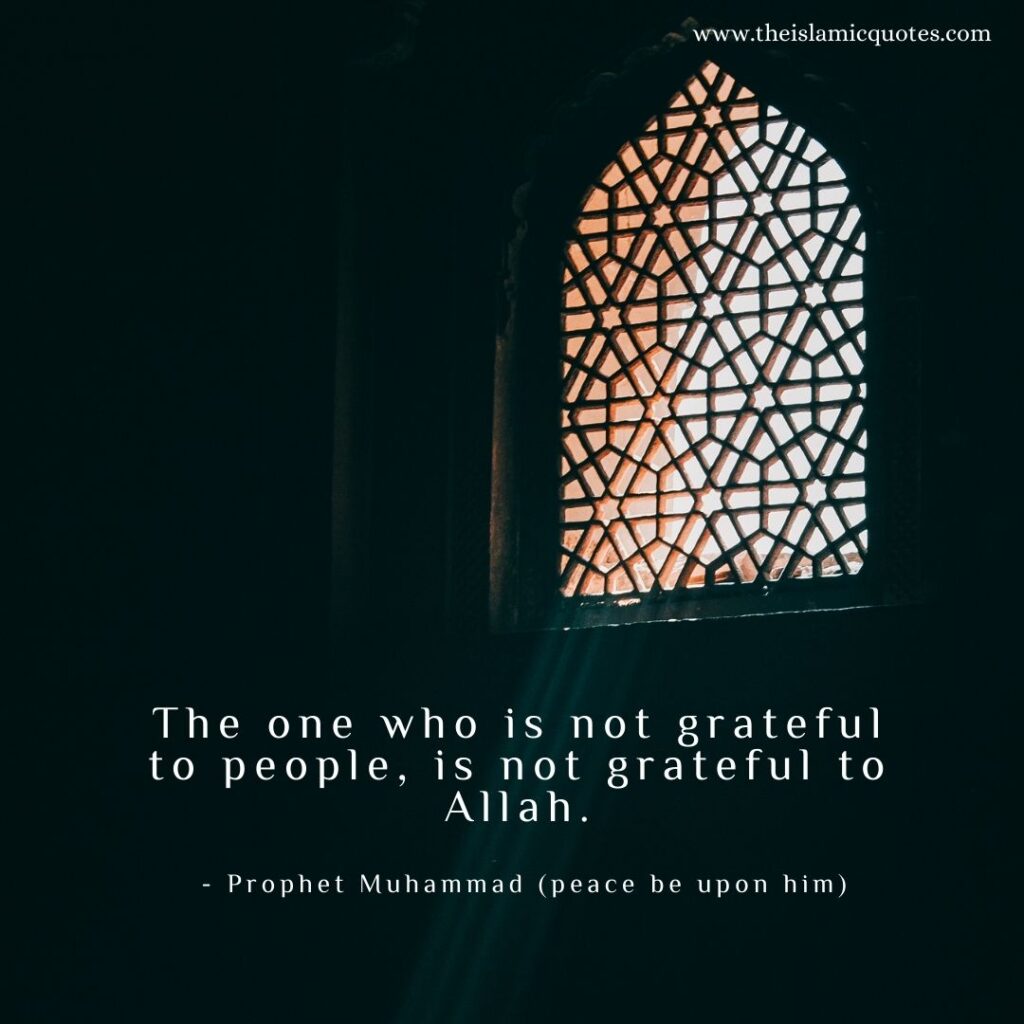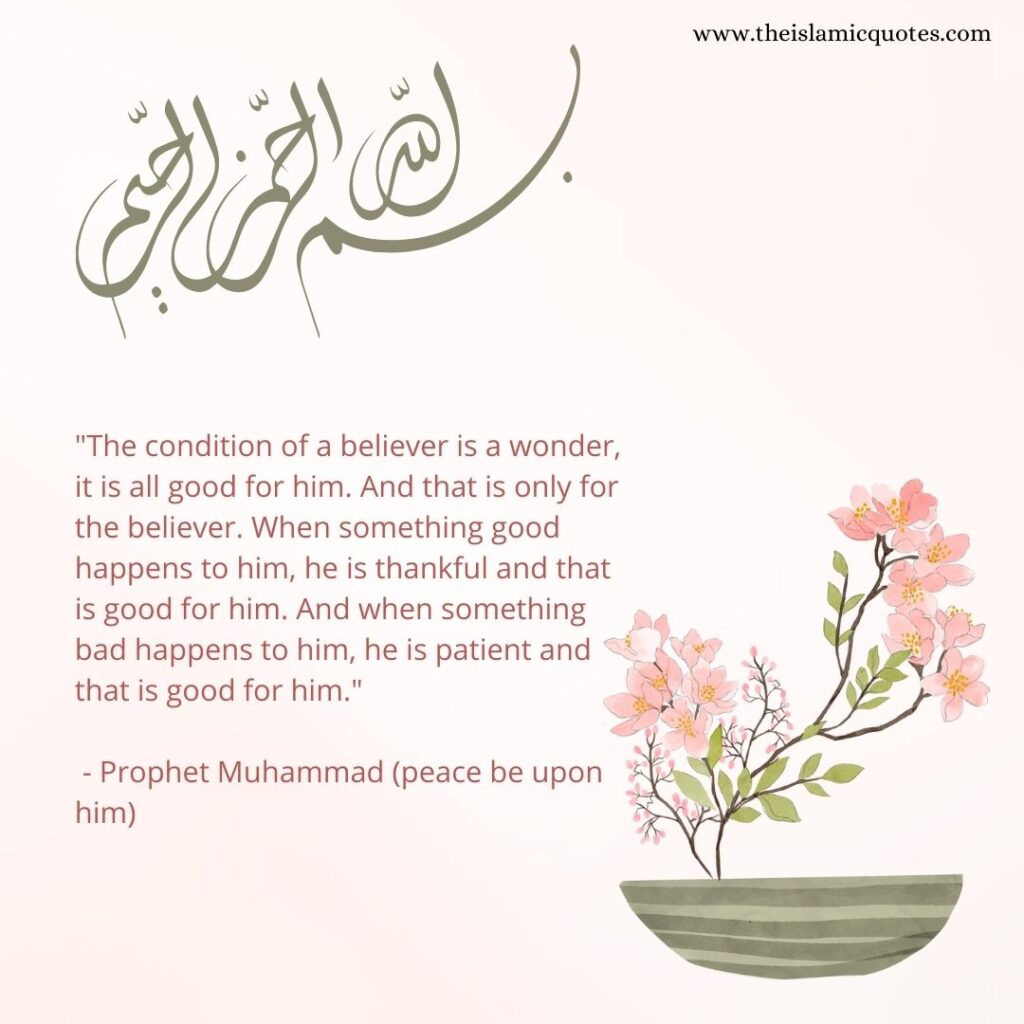Islamic teachings place a strong emphasis on gratitude, emphasising the significance of thanking Allah for all of His numerous blessings. Being grateful is not only a virtue, but also a way for Muslims to strengthen their faith and improve their general well-being.
This article will offer a thorough explanation of how to live a grateful Muslim life and explore doable actions that can be applied to everyday life.
Why is it Important to be Thankful?
Islam places a great deal of value on gratitude, which goes far beyond simple expressions of admiration. Recognising Allah’s blessings and their influence on our lives is an essential part of faith. The profound significance of being grateful in Islam and its numerous implications are examined in this article.
- A Form of Worship: In Islam, gratitude is regarded as a form of worship. When we give thanks to Allah, we recognise His favour towards us and His omnipotence. We achieve one of the main goals of our creation—to worship and submit to Allah in humility and gratitude—by being grateful.
- Faith-Strengthening: Gratitude acts as a catalyst for one’s faith to grow. We gain a deeper understanding of Allah’s constant presence in our lives when we actively recognise and appreciate His blessings. This understanding fosters a closer relationship with Allah and strengthens our faith in His omniscient wisdom and providence.
- Combating Ingratitude: Islam views ingratitude (kufran) as a serious spiritual illness. A state of heedlessness and ingratitude that results from not appreciating Allah’s blessings can erode our faith and keep us from Allah’s mercy. The positive relationship we have with our Creator and the purity of our hearts are preserved by cultivating gratitude, which helps combat this unfavourable trait.
- Contentment and Inner Peace: Gratitude fosters happiness and inner tranquilly. We develop a sense of satisfaction and tranquilly when we concentrate on the blessings we have received rather than worrying about what we don’t have. This satisfaction results from the knowledge that Allah, in His infinite wisdom, has given us everything we require, and we trust His heavenly plan for us.
- Protection from Unhappiness and Envy: Being grateful serves as a defence against unhappiness and envy. We become dissatisfied and fail to appreciate our own blessings when we constantly compare ourselves to others and feel jealous. Gratitude shifts our focus to the special blessings that have been given to each of us individually, promoting a sense of fulfilment and protecting us from unfavourable feelings.
- Purity of Intention and Action: Gratitude helps us to be more grateful. When we recognise that Allah is the source of all blessings, we make an effort to use them in a way that pleases Him. A sense of responsibility is engendered by gratitude, which calls us to pay attention to how we use our blessings and inspires us to perform deeds of kindness, compassion, and charity for other people.
- Receiving More Blessings: Showing your gratitude to Allah draws in more blessings from Him. The Quran promises that “I will increase you [in favour]” if you are grateful. (Quran 14:7). By appreciating and making use of the blessings we already have, we invite Allah to bestow us with more benefits. Since Allah bestows additional blessings on those who are grateful, gratitude becomes a cycle of abundance.
Tips on Being a Thankful Muslim
1 – Knowing your blessings:
Developing a profound awareness of Allah’s blessings is the first step in learning to be a grateful Muslim. Consider the countless blessings you have received, such as the gift of life, health, a family, and food. Realise that everything we have comes from Allah, and this understanding should inspire a deep sense of gratitude.

2 – Using Prayer to Express Gratitude:
According to Islamic tradition, salah (prayer) is an essential part of worship and a way to thank Allah. Spend some time in prayer expressing your sincere thanks to God for His favour. Engage in heartfelt supplication, thanking Him sincerely for His favours. Keep in mind that prayer is not just a ritual but also a means of making a spiritual connection and expressing gratitude.
If you’re struggling with praying on time, do go through these Tips To Get In Habit Of Praying Namaz Regularly.

3 – Engaging in Remembrance (Dhikr):
Dhikr, or remembering Allah, is a potent act that fosters gratitude. Repeating Allah’s names, praises, and prayers for the Prophet Muhammad (peace be upon him) will help you remember Allah on a regular basis. Dhikr should be a part of your daily routine, whether it is done in free time, while travelling, or as a special practise. Dhikr fosters an attitude of gratitude by serving as a constant reminder of Allah’s presence and blessings.
Here is our detailed post on benefits of dhikr.

4 – Keeping a Gratitude Journal:
Keeping a gratitude journal is a powerful tool for cultivating an attitude of gratitude. Every day, set aside some time to think about and record your feelings of gratitude. Focus on the good things in your life, no matter how small, and express your gratitude for each one. This routine serves as a reminder during trying times as well as improving awareness of Allah’s blessings.

5 – Practice Acts of Kindness:
Showing Allah your gratitude can also be done by being kind to other people. According to the Prophet Muhammad (may peace and blessings be upon him), “Whoever does not thank people has not thanked Allah” (Sunan Abi Dawud). By using kind words, considerate actions, and acts of service, show your appreciation for the people in your vicinity.
A Muslim who is grateful looks for opportunities to uplift and assist others while acknowledging their part in their own blessings. Here are some of the Best Islamic Quotes on Kindness.

6 – Reflecting on Trials and Tests:
Gratitude shouldn’t just be reserved for easy times, but also include difficult times. Recognise your trials as opportunities for growth from Allah’s tests. Express gratitude for the opportunity to grow stronger in your faith, practise patience, and rely on Allah’s guidance as you consider the wisdom and lessons concealed within difficulties. A positive outlook turns challenges into learning opportunities.
At the end of the day, it’s important to understand that Allah is The Best Planner of All Affairs.

7 – Avoid Complaining
Complaining and envy work against an attitude of gratitude. Develop self-awareness and make an effort not to gripe about unimportant things. Instead, concentrate on coming up with solutions and being happy with the decisions Allah has made for you.
Avoid comparing yourself to others, cultivate a mindset of contentment, and remember that genuine gratitude is a state of being that is independent of one’s environment.
Summing Up
In Islam, being grateful has enormous meaning that goes beyond simple expressions of gratitude. It is a type of worship that supports contentment, fosters faith, and guards against unfavourable traits. Gratitude enables us to strengthen our relationship with Allah, find inner tranquilly, and draw in more blessings. As Muslims, let us work to show gratitude in our daily actions by appreciating the incalculable blessings that our Creator has bestowed upon us.
To be a grateful Muslim, one must acknowledge and express gratitude for Allah’s blessings in all spheres of life. Our relationship with Allah is cultivated by cultivating gratitude through prayer, remembrance, journaling, deeds of kindness, and a positive outlook. This also improves our general wellbeing. As Muslims, let us make it a point to practise gratitude, to recognise and spread the blessings that have been bestowed upon us.






